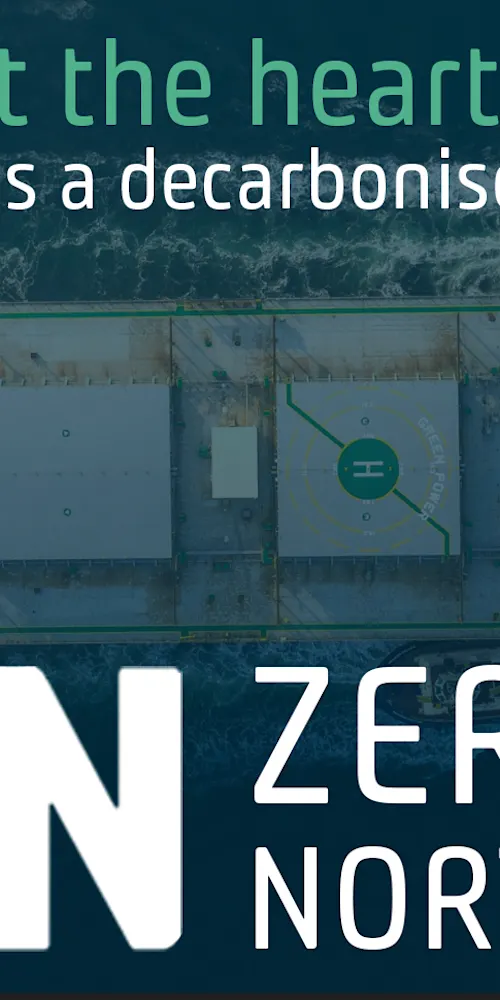Putting data at the heart of operations: critical steps towards a decarbonised shipping industry

Facing down the challenge of profitable decarbonisation, data and advanced, data-driven technologies are some of the most important tools at the maritime industry’s disposal. Their ability to unlock and underpin more intelligent decision-making makes using digital technologies an immediately achievable step towards greater sustainability and commercial outcomes.
But while the shipping industry’s data resource may be vast, it is widely underutilised, and the ability to unlock efficiencies, enhance vessel performance, increase earnings, and vitally, reduce CO2 emissions, hasn’t been harnessed to its full potential. It’s therefore worth exploring some of the steps we can all take to put data – and the significant change it can unlock – at the heart of our industry’s operations.
Operationalising Data
One of the key ways for shipping to unlock the power of its data resource is to turn it into actions. In other words – and taking voyage data as an example - the change-making power of maritime information that an operator may hold does not come from the data alone, but rather what this information says about the reality that a vessel faces.
This is what we mean when we say ‘actionable data’; it’s about uniting raw information with the right tools, integrations and partnerships to turn it into tangible decisions that someone can weigh up in their day-to-day business. This is also known as ‘operationalising’ data and it’s the first step to creating a genuine impact. This is how our Optimise platform works; it takes raw input and combines it with a huge range of external market datapoints, which are crunched through an advance algorithm, to create its recommendations on speed, route and bunkering.
Read more: Collaboration, Unification & Digitalisation
Smarter Products, Greater Impact
Now that we understand how data is turned into actions, we can think about the next step. That is, building systems that improve their outputted insights over time. By building platforms that process and interpret a wide range of datapoints – and, crucially, learn from this interpretation – we’re able to unlock the power of what’s known as the ‘data flywheel’. Data flywheels are exciting because they only get better over time; the smarter the algorithms, the greater the impact; the greater the impact, the more users; and the more users, the more data to better provide these actionable insights and benefit to industry and climate.
The effect is simple, yet profound. Importantly, it’s also based on forging collaborations and partnerships that help to break down data silos, with industry leaders working together to drive greater shared impact than could reasonably be achieved alone.
The data flywheel effect is what we have geared Optimise up to harness, and it’s also why ZeroNorth is embracing a partnership approach to drive powerful insights for our users.
Evolutionary steps
Finally, it is right to think about where the industry is going next. As a sector, we are seeing an increased use of machine learning and artificial intelligence algorithms in digital technologies. These will drive the next quantum leap forward in the recommendations that software can make. In the coming years, we will be able to paint an even better digital picture of the reality that a vessel faces – and from that picture make impactful recommendations that help to improve revenue and cut emissions.
Sitting as ZeroNorth does at the intersection of technology and maritime provides us with a unique perspective; we’re able to marry the prestige and knowledge of shipping with the most cutting-edge technologies of tomorrow.
We do so by applying three key mantras: autonomy, mastery, and purpose.
Autonomy means that our teams have the opportunity to pursue the solutions and additions that they believe will help to drive real change in the industry. In this innovative environment, they own the changes they make and are allowed to run with them.
Mastery means that we are always trying to learn from each other, customers and the market as a whole. This latter point is particularly important given the high level of change happening at the moment within the maritime industry.
Finally, we are guided by our purpose: digitalising shipping for the climate. This is the compass needle that sets our direction as an organisation and is what gets us out of bed in the morning. It also explains why we passionately believe that data will help to solve the key challenges that the maritime industry faces and that, together, we’ll be able to use shipping’s vast wellspring of digital information to profitably, proactively decarbonise.